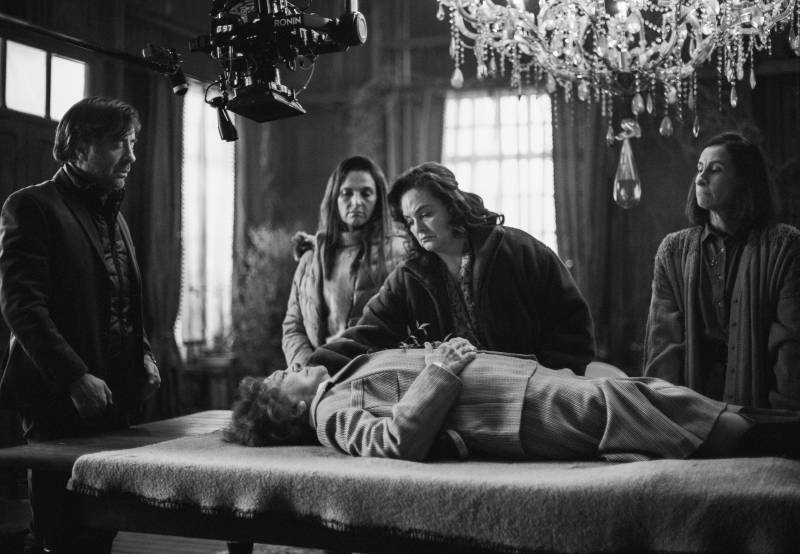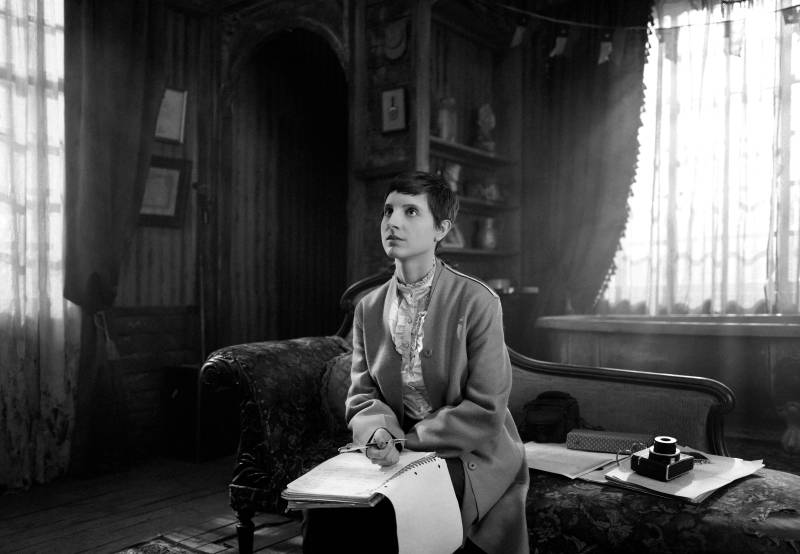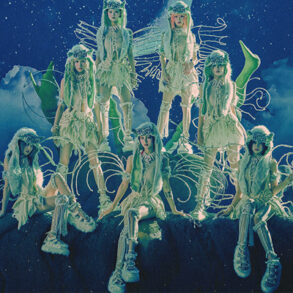Once Pinochet lands in Chile a century and a half later, Larrain mixes in some actual history of the 1973 U.S.-backed coup that left democratically elected President Salvador Allende dead and Pinochet’s aggregation of thugs in power. Larraín’s Pinochet still maintains he was simply eliminating Communists — but, of course, one man’s anti-Communist is another man’s fascist.

One of the funniest and darkest conversations in El Conde takes place in the vicinity of the aforementioned freezer. A peeved Fyodor (who is not just a loyal manservant but, bitten by Pinochet some years ago, his slave) declares, “I liked killing. You liked stealing.”
“No, I liked killing, too,” the Count asserts, perversely defending his self-invented reputation even in a private exchange with the single most reliable witness to his self-serving career. It’s a deranged, Trump-like moment (albeit without the bombast) that evokes the cruelty and ghastliness of Pinochet’s reign. (Jaime Vadell’s multidimensional portrayal stands alongside John Huston, Christopher Plummer and Frank Langella’s memorably menacing portrayals of seething aged patriarchs.)
The public misperception of his “legacy” — that he was a dedicated thief and no more — seems to be Pinochet’s motivation to tie up loose ends and shuffle off this immortal coil. It is the vast array of bearer bonds and stock certificates, however — their inheritance! that has drawn his and Lucia’s five grown-up children to the airless house. So craven are they that address their father as “my general.”
All this time, meanwhile, a dedicated young nun named Carmencita (Paula Luchsinger), whose superpower is accounting, is closing on the Count. Her charm, combined with the Pinochet clan’s shamelessness — that is, their expectation of blank-check immunity as part of their privilege — uncovers the extent and location of Pinochet’s accumulated fortune.

But wait: It turns out Carmencita was actually dispatched by her superiors to perform an exorcism of the Count. The Church, you understand, is focused on saving souls, not the grubby muck of money. That’s the reason Larrain photographs Carmencita at a crucial moment to look like the heroine of The Passion of Joan of Arc, Carl Theodor Dreyer’s silent-era masterpiece.
But can the Church outwit Satan? Or will the Count seduce and subvert the special counsel, er, covert investigator?
Larraín’s political commentary, meanwhile, reaches its apex with a series of audacious, chilling third-act revelations, ones I shouldn’t reveal. These nasty bits provide a (mostly) serious coda to the backstabbing and puréed-heart quaffing with which he has entertained us for the previous hour and 45 minutes.
Nonetheless, exactly 50 years after Pinochet’s coup, I was expecting a more viscerally savage revenge flick. To be sure, El Conde is far more gruesome than your typical domestic melodrama, but it is also more artful — and thoughtful — than a genre horror film. Larraín doesn’t give us the catharsis of driving a stake through the tyrant’s heart, a fantasy as potentially satisfying as a verdict from the International Criminal Court in The Hague.
Instead, he opts for an ending that is both disturbing and haunting. Jason, Freddy Krueger and Michael Myers, eat your (or someone else’s) heart out.

El Conde (The Count) begins streaming Sept. 15 on Netflix.








